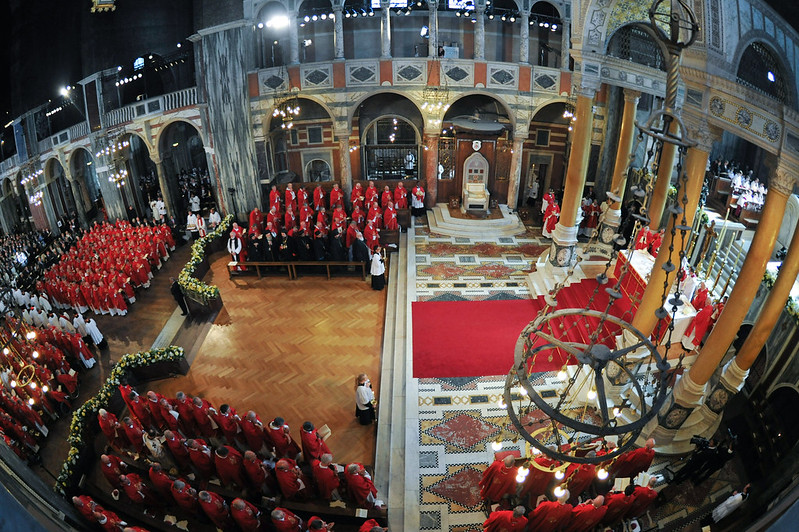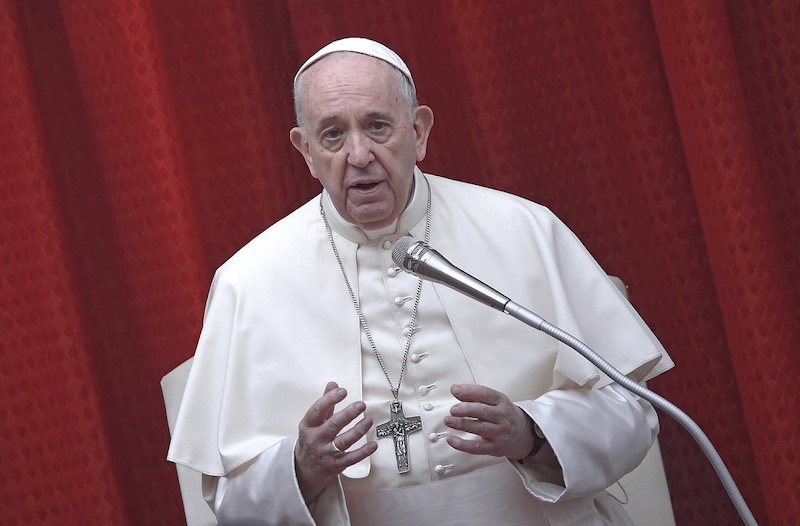Pope Francis is urging world leaders not to go down the path of nationalism and isolation following the Covid-19 pandemic.
In a speech to the United Nations, Pope Francis warned against ideologies which place power before people.
The 83-year-old Roman Pontiff told the UN general assembly that the Coronavirus pandemic was forcing the world to make a choice.
“One path leads to the consolidation of multilateralism as the expression of a renewed sense of global co-responsibility, a solidarity grounded in justice and the attainment of peace and unity within the human family, which is God’s plan for our world,” Francis explained in a televised address broadcast today.
“The other path emphasises self-sufficiency, nationalism, protectionism, individualism and isolation; it excludes the poor, the vulnerable and those dwelling on the peripheries of life.”
He added: “That path would certainly be detrimental to the whole community, causing self-inflicted wounds on everyone. It must not prevail.”
The Pope called for a “change of direction” as the UN marks its 75th anniversary, and faces huge pressures to the rules-based, international consensus which emerged following the Second World War.
Throughout his pontificate, Francis has become a counter-weight against the rise of nationalist populism sweeping across parts of Europe, arguing that it “is evil and ends badly, as we have seen in the past century.”
His papacy, and the diplomatic work of the Holy See, has sought to work with the UN which he described today “as a sign of unity between states and an instrument of service to the entire human family”. Francis' forthcoming encyclical, to be released on 4 October, is expected to focus out ways to combat conflict, build social friendship and overcome division.
The Vatican has consistently supported the work of multilateral co-operation and cross-national dialogue to tackle the climate crisis, poverty, war and refugees forced to leave their homes.
Last year, the Pope told diplomats that “reactive, emotional and hasty solutions” might be able to “garner short-term consensus” but will fail to solve long term problems.
During his UN speech today, he warned against a “throwaway culture”, which Francis said is rooted in the "promotion of ideologies” which deny human rights and a “craving for absolute power and control that is widespread in today’s society.”
This culture, he stressed, is “an attack against humanity itself”.
The Pope’s speech was his second to the UN in his seven-and-a-half year pontificate and comes five years after he addressed the General Assembly in New York during a visit to the United States.
In 2015 he spoke to the UN ahead of the signing of the Paris climate accords, a landmark deal signed by 195 countries aimed at reducing carbon emissions. In 2017, however, President Donald Trump signalled his intention to withdraw the United States from the agreement.
“We must honestly admit that, even though some progress has been made, the international community has shown itself largely incapable of honouring the promises made five years ago,” the Pope said.
“I think of the alarming situation in the Amazon and its indigenous peoples. Here we see that the environmental crisis is inseparably linked to a social crisis, and that caring for the environment calls for an integrated approach to combatting poverty and exclusion.”
To combat the pandemic, Francis called for the “poorest, and most vulnerable” to be given preference for a vaccine, while stressing the urgent need to promote public health and to give everyone access to medical care. His remarks to the UN come after he warned last month against a “vaccine nationalism”.
“The pandemic has shown us that we cannot live without one another, or worse still, pitted against one another,” the Pope, who was recently listed as 18th on a world’s most admired survey, concluded.
“A complex task lies before us, one that requires a frank and coherent dialogue aimed at strengthening multilateralism and cooperation between states. The present crisis has further demonstrated the limits of our self-sufficiency as well as our common vulnerability. It has forced us to think clearly about how we want to emerge from this: either better or worse.”



 Loading ...
Loading ...